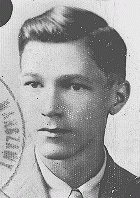You searched for: 利比里亚谷歌留痕转码收录【TG飞机:@bapingseo】INS,FACEBOOK竞价排名【TG电报:@bapingseo】亞美尼亞google留痕收錄【Telegram:@bapingseo】博金国际娱app多盈在线app下载ios回本必看绝密公式算单双99幸运快3?Et5A99/850275.html
<< Previous | Displaying results 176-200 of 311 for "利比里亚谷歌留痕转码收录【TG飞机:@bapingseo】INS,FACEBOOK竞价排名【TG电报:@bapingseo】亞美尼亞google留痕收錄【Telegram:@bapingseo】博金国际娱app多盈在线app下载ios回本必看绝密公式算单双99幸运快3?Et5A99/850275.html" | Next >>
-
The Nuremberg Code
ArticleLeading German physicians and administrators were put on trial for their role during the Holocaust. The resulting Nuremberg Code was a landmark document on medical ethics. Learn more
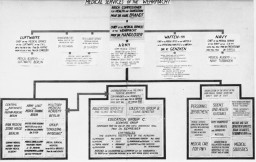
-
Reich Security Main Office (RSHA)
ArticleThe Reich Security Main Office (RSHA), created by Heinrich Himmler, brutally coordinated and perpetrated many aspects of the Holocaust.
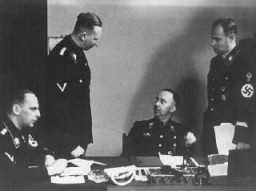
-
Benito Mussolini
ArticleBenito Mussolini’s Fascist takeover of Italy was an inspiration and example for Adolf Hitler and the Nazi Party in Germany. Learn more.
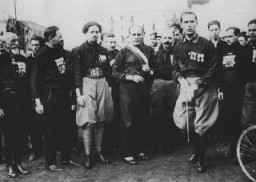
-
Operation Harvest Festival
Timeline EventNovember 3, 1943. On this date, SS and police units implemented "Operation Harvest Festival" (also known as Aktion Erntefest).

-
Anti-Jewish Boycott
Timeline EventApril 1, 1933. On this date, the Nazi Party and its affiliates organized a nationwide boycott of Jewish-owned businesses in Germany.
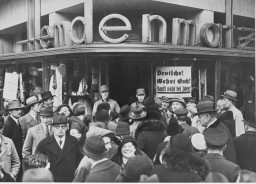
-
Mutiny of German Sailors in Kiel
Timeline EventNovember 3, 1918. On this day, German sailors in Kiel revolt, and protests against World War I spread.
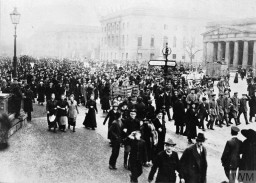
-
German Invasion of Poland
Timeline EventSeptember 1, 1939. On this date, Germany invaded Poland and initiated World War II in Europe.
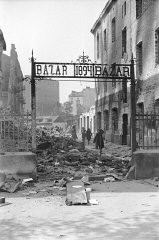
-
The Nazi Rise to Power
ArticleThe Nazi Party was one of a number of right-wing extremist political groups that emerged in Germany following World War I. Learn about the Nazi rise to power.
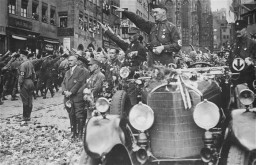
-
Gerda Blachmann Wilchfort describes the mood of passengers on the "St. Louis" after they were denied entry into Cuba
Oral HistoryGerda and her parents obtained visas to sail to Cuba on the "St. Louis" in May 1939. When the ship arrived in Havana harbor, most of the refugees were denied entry and the ship had to return to Europe. Gerda and her parents disembarked in Belgium. In May 1940, Germany attacked Belgium. Gerda and her mother escaped to Switzerland. After the war, they were told that Gerda's father had died during deportation.
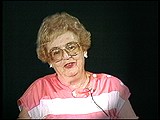
-
The United States and the Holocaust, 1942–45
ArticleWhy did the United States go to war? What did Americans know about the “Final Solution”? How did Americans respond to news about the Holocaust? Learn more.
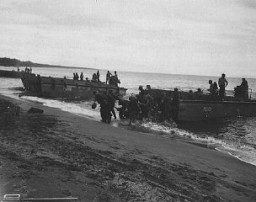
-
Kristallnacht
ArticleOn November 9–10, 1938, the Nazi regime coordinated a wave of antisemitic violence. This became known as Kristallnacht or the "Night of Broken Glass." Learn more
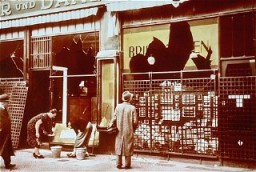
-
Herzogenbusch Main Camp (Vught)
ArticleThe Herzogenbusch concentration camp in the Netherlands began functioning in January 1943. Learn about its establishment, administration, prisoners, and conditions there.
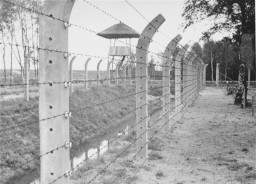
-
Axis Powers in World War II
ArticleThe three principal partners in the Axis alliance were Germany, Italy, and Japan. Learn more about the Axis powers in WW2.
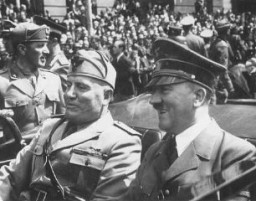
-
Trawniki
ArticleFrom July 1941-May 1944, the SS camp at Trawniki had several purposes. It is best known as the training site for auxiliary police guards used in Nazi killing centers. Learn more.
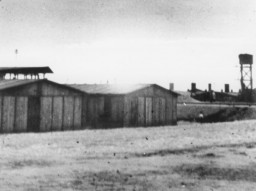
-
Columbia-Haus
ArticleThe Columbia-Haus camp was one of the early camps established by the Nazi regime. It held primarily political detainees. Learn more about the history of the camp.
-
World War II Dates and Timeline
ArticleWorld War II was the largest and most destructive conflict in history. Learn about key WWII dates in this timeline of events, including when WW2 started and ended.
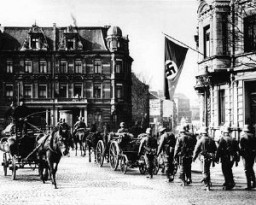
-
Life After the Holocaust: Thomas Buergenthal
ArticleAfter WWII and the fall of the Nazi regime, Holocaust survivors faced the daunting task of rebuilding their lives. Listen to Thomas Buergenthal's story.
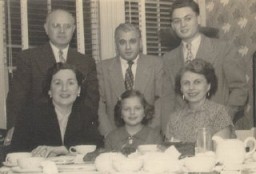
-
Nazi Territorial Aggression: The Anschluss
ArticleThe Anschluss, Germany's annexation of Austria in March 1938, was the Nazi German regime’s first act of territorial aggression and expansion. Learn more.
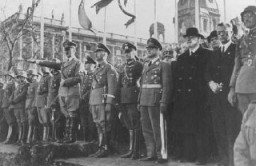
-
Simone Weil
ID CardSimone was the oldest of two children born to a Jewish family in the small village of Ringendorf. When she was 3 her family moved to Strasbourg. Her father made his living breeding sheep. Simone and her younger brother were both active in a Jewish scouting organization, Les Eclaireurs Israelites de France (EIF). Simone attended a public secondary school in Strasbourg. 1933-39: In addition to attending secondary school for five days of the week, Simone also went to a Jewish religious school on the other…
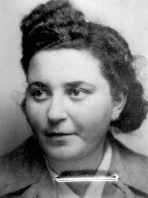
-
Welek Luksenburg
ID CardWelek grew up in Dabrowa Gornicza, an industrial town in western Poland. His father, Simcha, was a wholesale meat merchant and his mother, Rozalia, served as president of the local chapter of the Women's International Zionist Organization. Welek's older brother, Szlomo, was a dentist. The Luksenburgs were among the several thousand Jews who lived in Dabrowa Gornicza. 1933–39: Like many other children in the town, Welek attended public school. Because his family was very religious, he did not attend…
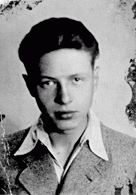
-
Abraham Bergman
ID CardAbraham was born to a Jewish family in Krasnik, a town in the Lublin district of Poland. The town had a large Jewish population. Abraham's father was a tailor. When Abraham was 2, his mother died and he was raised by his grandmother. At the age of 7, Abraham started public school. 1933-39: Abraham liked school but found it difficult. The Christian children often yelled at the Jews, "You killed our God." One year, on the day before Christmas break, some kids brought ropes tied to iron weights to school.…
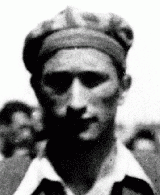
-
Fischel (Philip) Goldstein
ID CardFischel was the youngest of five children. He came from a Jewish family of artisans; his father was a tailor, his uncles were furriers, and his sister was a dressmaker. Fischel started his education at a Jewish parochial school at age 3, where he studied Hebrew and Yiddish. He continued his education at Jewish private schools until age 10, when he entered Polish public schools. 1933-39: After graduating from the Polish public school system at age 14, Fischel started an apprenticeship in his father's…
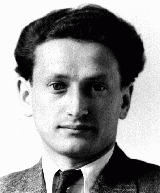
-
Milica Popovic Kuhn
ID CardMilica was the fourth of nine children born to Serbian Orthodox landowners in the Croatian part of Yugoslavia. In 1922 Milica married Milan Kuhn, a Catholic Serb, in a Serbian Orthodox ceremony, and the couple moved to the Macedonian part of Yugoslavia, where Milan was working on hydroelectric projects. In 1932 the couple returned with their young daughter to live in northern Yugoslavia. 1933-39: The Kuhns lived in the city of Zrenjanin in the Vojvodina region where Milan worked as a hydroengineer…
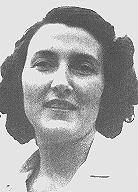
-
Judith Kalman
ID CardJudith was the only child born to a Jewish couple who lived in Hatvan, a small town 36 miles northeast of Budapest. Judith's father worked in his brother's business, marketing grains and other agricultural products purchased from local farms. When she was 3, Judith gave her first public recitation of poetry, an interest that she pursued throughout her childhood. 1933-39: Judith's family wasn't religious--they were Hungarians who happened to be Jewish, and their family was well-liked in Hatvan. But in the…
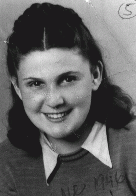
-
Pawel Zenon Wos
ID CardPawel was the oldest of four children born to Roman Catholic parents in Poland's capital of Warsaw. Pawel's father had worked for the Polish merchant marine before starting his own textile business in 1930. The family moved to a comfortable apartment near the Royal Castle and the Vistula River. Pawel excelled in sports, including basketball and tennis. His favorite sport was rowing. 1933-39: In May 1939 Pawel became an army reserve officer and went to training camp near Augustow. On the morning of…
